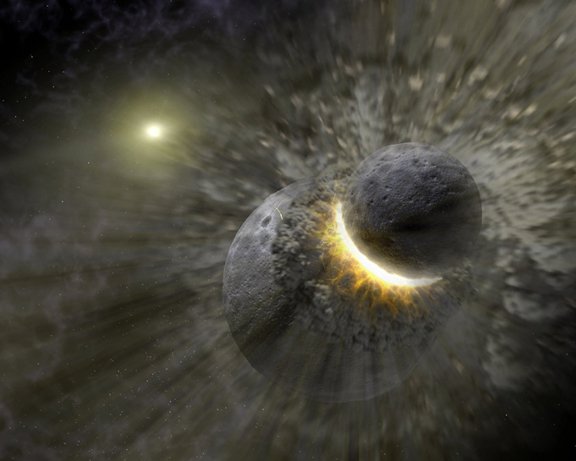
June 1, 2019
Research Highlight
When Protoplanets Collide

An artist’s rendering shows a planetary collision near the star Vega. Terrestrial planets are thought to develop through the collision of protoplanets during the formation of solar systems.Image credit: NASA.
A new study provides a more accurate picture of how energy dissipates during large collisions that occur during the formation of planets. Understanding the dissipation of energy in these events is important in estimating the orbital parameters of terrestrial planets that are created during the formation of solar systems. The study is the first treatment of energy dissipation in the ‘post-runaway’ phase, a period in which protoplanets collide amongst themselves and grow into terrestrial planets. The results show that varying the level of energy dissipation that occurs when protoplanets collide does not have a dramatic effect on the terrestrial planetary system that ultimately develops.
The study, “Energy Dissipation in Large Collisions—No Change in Planet Formation Outcomes,” was published in The Astrophysical Journal. This work was supported by the Emerging Worlds Program. The NASA Astrobiology Program provides resources for Emerging Worlds and other Research and Analysis programs within the NASA Science Mission Directorate (SMD) that solicit proposals relevant to astrobiology research.